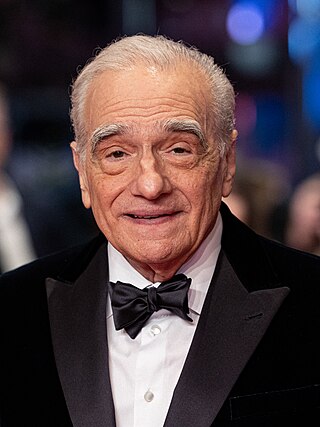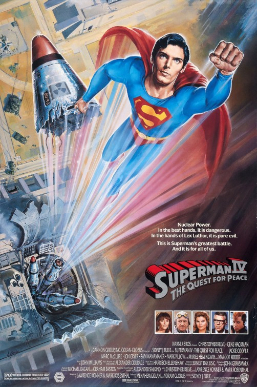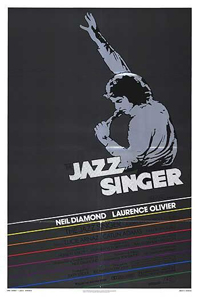Related Research Articles

Martin Charles Scorsese is an American filmmaker. He emerged as one of the major figures of the New Hollywood era. Scorsese has received many accolades, including an Academy Award, four BAFTA Awards, three Emmy Awards, a Grammy Award, three Golden Globe Awards, and two Directors Guild of America Awards. He has been honored with the AFI Life Achievement Award in 1997, the Film Society of Lincoln Center tribute in 1998, the Kennedy Center Honor in 2007, the Cecil B. DeMille Award in 2010, and the BAFTA Fellowship in 2012. Five of his films have been inducted into the National Film Registry by the Library of Congress as "culturally, historically or aesthetically significant".
The IPCRESS File is Len Deighton's first spy novel, published in 1962. The story involves Cold War brainwashing, includes scenes in Lebanon and on an atoll for a United States atomic weapon test, as well as information about Joe One, the Soviet Union's first atomic bomb. The story was made into a film in 1965 produced by Harry Saltzman, directed by Sidney J. Furie and starring Michael Caine; and a 2022 TV series, starring Joe Cole, Lucy Boynton and Tom Hollander.

Iron Eagle is a 1986 action film directed by Sidney J. Furie who co-wrote the screenplay with Kevin Alyn Elders, and starring Jason Gedrick and Louis Gossett Jr. While it received negative reviews, being unfavorably compared to the similarly-themed Top Gun released the same year, the film earned $24,159,872 at the U.S. box office. Iron Eagle was followed by three sequels: Iron Eagle II, Aces: Iron Eagle III, and Iron Eagle on the Attack, with Gossett being the only actor to appear in all four films.

William Henry Marcus Miller Jr. is an American musician, songwriter, and record producer. He has worked with trumpeter Miles Davis, pianist Herbie Hancock, singer Luther Vandross, and saxophonists Wayne Shorter and David Sanborn, among others. He was the main songwriter and producer on three of Davis' albums: Tutu (1986), Music from Siesta (1987), and Amandla (1989). His collaboration with Vandross was especially close; he co-produced and served as the arranger for most of Vandross' albums, and he and Vandross co-wrote many of Vandross' songs, including the hits "I Really Didn't Mean It", "Any Love", "Power of Love/Love Power" and "Don't Want to Be a Fool". He also co-wrote the 1988 single "Da Butt" for Experience Unlimited.

Superman IV: The Quest for Peace is a 1987 superhero film directed by Sidney J. Furie and written by Lawrence Konner and Mark Rosenthal from a story by Christopher Reeve, Konner, and Rosenthal based on the DC Comics character Superman. The film stars Reeve, Gene Hackman, Jackie Cooper, Marc McClure, Jon Cryer, Sam Wanamaker, Jim Broadbent, Mariel Hemingway, and Margot Kidder.

Louis Cameron Gossett Jr. is an American actor. Born in Coney Island, Brooklyn, New York City, he had his stage debut at the age of 17, in a school production of You Can't Take It with You. Shortly after, he successfully auditioned for the Broadway play Take a Giant Step. Gossett continued acting onstage in critically acclaimed plays these include A Raisin in the Sun (1959), The Blacks (1961), Tambourines to Glory (1963) and The Zulu and the Zayda (1965). Also, Gossett added many roles in films and on television to his résumé, as well as released music. In 1977, Gossett gained wide recognition for his role of Fiddler in the popular miniseries Roots, for which he won Outstanding Lead Actor for a Single Appearance in a Drama or Comedy Series at the Emmy Awards.

The Entity is a 1982 American supernatural horror film directed by Sidney J. Furie, and written by Frank De Felitta, who adapted his 1978 novel of the same name. The film stars Barbara Hershey as a single mother in Los Angeles who is raped and tormented by an invisible assailant.

Daniel Mannix Petrie was a Canadian film, television, and stage director who worked in Canada, Hollywood, and the United Kingdom; known for directing grounded human dramas often dealing with taboo subject matter. He was one of several Canadian-born expatriate filmmakers, including Norman Jewison and Sidney J. Furie, to find critical and commercial success overseas in the 1960s due to the limited opportunities in the Canadian film industry at the time. He was the patriarch of the Petrie filmmaking family, with four of his children all working in the film industry.

The Jazz Singer is a 1980 American musical drama film directed by Richard Fleischer and produced by Jerry Leider. The film stars Neil Diamond, Laurence Olivier and Lucie Arnaz, and tells the story of a young singer who is torn between tradition and pursuing his dreams as a pop singer. Based on the 1925 play of the same name by Samson Raphaelson, it is the fourth film adaptation, following the 1927 and the 1952 theatrical adaptions, and a 1959 television adaptation.

The Appaloosa is a 1966 American Western film starring Marlon Brando, Anjanette Comer, and John Saxon, who was nominated for a Golden Globe for Best Supporting Actor for his portrayal of a Mexican bandit. The film was directed by Sidney J. Furie, and shot in Techniscope in California, Utah, and Arizona.

Ladybugs is a 1992 American sports-comedy film starring Rodney Dangerfield and directed by Sidney J. Furie. Dangerfield plays a Denver businessman who takes over a girls soccer team that the company he works for sponsors. The film also stars Jackée Harry as his assistant coach, Ilene Graff as his girlfriend, Jonathan Brandis as his girlfriend's son, and Vinessa Shaw as his boss' daughter.

Enzo G. Castellari is an Italian film director, screenwriter and actor.
Don Owen was a Canadian film director, writer and producer who spent most of his career with the National Film Board of Canada (NFB). His films Nobody Waved Good-bye and The Ernie Game are regarded as two of the most significant English Canadian films of the 1960s.

The Ipcress File is a 1965 British spy film directed by Sidney J. Furie and starring Michael Caine. The screenplay, by Bill Canaway and James Doran, was based on Len Deighton's novel The IPCRESS File (1962). It received a BAFTA award for the Best British film released in 1965. In 1999, it was included at number 59 on the BFI list of the 100 best British films of the 20th century.

The 18th Cannes Film Festival was held from 3 to 16 May 1965. Olivia de Havilland became the first woman president of the jury.

Colonel H. L. Ross is a fictional character from the series of novels by Len Deighton variously described as the "Secret File" or "Unnamed hero" novels. His first names are not revealed.
A Cool Sound from Hell is a 1959 Canadian film directed by Sidney J. Furie.

Mark Alexandrovich Ivanir is a Ukrainian-born Israeli actor known for his character roles on American film and television. He is fluent in six languages, a skill often shown off in his performances.

The Dependables is a 2014 straight-to-DVD family action film directed by Sidney J. Furie.

The Ipcress File is a British cold war spy thriller television series loosely based on the 1962 novel The IPCRESS File by Len Deighton. Written by John Hodge and directed by James Watkins, it stars Joe Cole, Lucy Boynton and Tom Hollander. It was first broadcast at 9pm from Sunday 6 March to 10 April 2022 on ITV. The entire series was available for streaming, with commercials, on ITV Hub after episode 1 was broadcast. Within a week the full series was also available, commercial-free, on BritBox in the UK.
References
- ↑ "Ancestry Library Edition". search.ancestrylibrary.com.
- 1 2 Beard, William. "Sidney Furie". The Canadian Encyclopedia. Retrieved 2017-09-20.
- ↑ "AN INTERVIEW WITH SIDNEY J. FURIE (PART 1 OF 2)". www.money-into-light.com. Retrieved 2017-09-20.
- ↑ Kremer, Daniel. "Sidney J. Furie is Alive and Well and Living in Pictures: An Appreciation of an Unjustly Maligned and Marginalized Director". ConFluence Film Blog. Retrieved 2017-09-20.
- ↑ "Sidney J. Furie, Forgotten Genius of Film? | I Hate Hollywood | Shepherd Express" . Retrieved 2017-09-20.
- ↑ Scorsese, Martin (2015-10-31). "Martin Scorsese's Scariest Movies of All Time". The Daily Beast. Retrieved 2017-09-20.
- ↑ "The Boys in Company C (1978)". All About War Movies. 2014-05-27. Retrieved 2017-09-20.
- ↑ Mann, Roderick (1986-02-02). "Sidney Furie Leads The Cheer For 'Iron Eagle'". The Los Angeles Times. Retrieved 2010-08-24.
- ↑ Sidney J. Furie: Life and Films by Daniel Kremer
- ↑ Haaretz: "Superman, Man of Schlemiel? - Superman, the invention of two U.S. Jews, is a profoundly Jewish character whose film history is entwined with that of American Jewry" by Nathan Abrams June 16, 2013
- ↑ Daniel Kremer (9 October 2015). Sidney J. Furie: Life and Films. University Press of Kentucky. pp. 12–. ISBN 978-0-8131-6598-1.
- ↑ WISE, WYNDHAM. "A Dangerous Age". The Canadian Encyclopedia. Retrieved 2017-09-20.
- 1 2 Portrait: Sidney J. Furie, TIFF The Review, Aug 31, 2016 . Accessed November 13, 2016
- ↑ "The Leather Boys". BFI. Archived from the original on February 22, 2016. Retrieved 2017-09-20.
- ↑ Murray, Raymond (1996). Images in the Dark: An Encyclopedia of Gay and Lesbian Film and Video . Plume. ISBN 9780452276277.
- ↑ "The Leather Boys (1964) - Moto Movie Review | RideApart". RideApart. Retrieved 2017-09-20.
- ↑ "Movie Review - - The Screen: Marlon Brando in 'The Appaloosa':A Western Directed by Furie Has Premiere - NYTimes.com". The New York Times. Retrieved 2017-09-20.
- ↑ "Appaloosa, The Review (1966)". www.thespinningimage.co.uk. Retrieved 2017-09-20.
- ↑ "The Godfather Wars | Vanity Fair". Vanity Fair . 2014-07-14. Archived from the original on 2014-07-14. Retrieved 2017-09-20.
{{cite web}}: CS1 maint: bot: original URL status unknown (link) - ↑ Pulver, Andrew (2013-11-12). "Martin Scorsese names his scariest films of all time". The Guardian. ISSN 0261-3077 . Retrieved 2017-09-20.
- ↑ "11 Pairs of Damn Near Identical Movies That Were Released at the Same Time". 11 Points. Retrieved 2017-09-20.
- 1 2 "What happened to Superman IV's Nuclear Man?" . Retrieved 2017-09-20.
- ↑ "36 Things We Learned from the 'Superman IV: The Quest for Peace' Commentary". Film School Rejects. 2014-07-24. Retrieved 2017-09-20.
- ↑ Lentz, Harris M. (February 1989). Science fiction, horror & fantasy film and television credits supplement: through 1987. McFarland. ISBN 9780899503646.
- ↑ Superman IV: The Quest for Peace , retrieved 2017-09-20
- ↑ "Portrait: Sidney J. Furie". TIFF. 2016-08-31. Retrieved 2017-09-20.
- ↑ "DGC honors Furie with lifetime achievement". The Hollywood Reporter. Retrieved 2017-09-20.
- ↑ "Festival de Cannes: The Ipcress File". festival-cannes.com. Retrieved 2009-03-04.
- ↑ "Tyler Perry to Host Film Life's 2006 Black Movie Awards - A Celebration of Black Cinema: Past, Present & Future, Premiering Wednesday, Oct. 18, on TNT". Time Warner. Retrieved 2010-11-03.
- ↑ Directors Guild of Canada 2010 DGC Awards. Retrieved August 13, 2010.